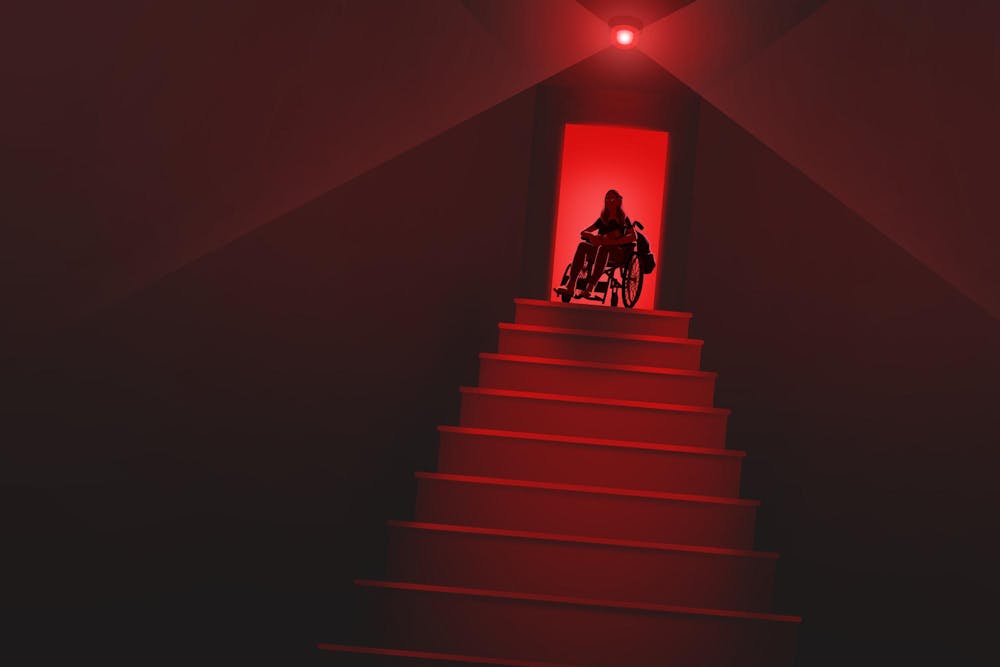Tornado warnings issued by the University on Sept. 27 reminded UNC first-year Kira Tiller about the obstacles students with disabilities could face when trying to stay safe during campus emergencies.
“It's the University's responsibility to keep students safe, to protect students,” Tiller said. “And that means all students.”
Tiller, a member of the Disability Advocates Committee, said she did advocacy work related to emergency preparedness for students with disabilities throughout high school. She then founded and operated a lobbying organization called Disabled Disrupters that combated the inaccessibility of emergency procedures at the K-12 grade levels.
“But emergencies don’t stop once you graduate high school,” Tiller said.
The UNC Campus Safety website states that individuals with disabilities who may need additional assistance during emergencies should develop their own evacuation plans. The website contains guidelines on how to assess evacuation options, enlist the help of bystanders and inform others of one’s needs.
Tiller said she was responsible for creating her personalized dorm emergency plan with the help of Accessibility Resources & Services when she came to UNC.
As a student with epilepsy, Tiller said the flashing lights involved in many emergency procedures, such as fire evacuations, can trigger seizures. In case of emergency she said she needs to be able to close her eyes while someone guides her to safety.
The plan Tiller came up with involves her roommate or another student guiding her out of her residence hall if needed. Tiller said she’s uncomfortable with the plan because it’s unreliable to count on another student who may be uninformed or absent.
She said that no ARS emergency plan was created for when she’s in class, saying that most of her academic buildings have flashing alarm lights. She said she feels that she is at the mercy of whatever emergency may occur. Tiller said she isn’t sure her professors or fellow students would know how to help her.




